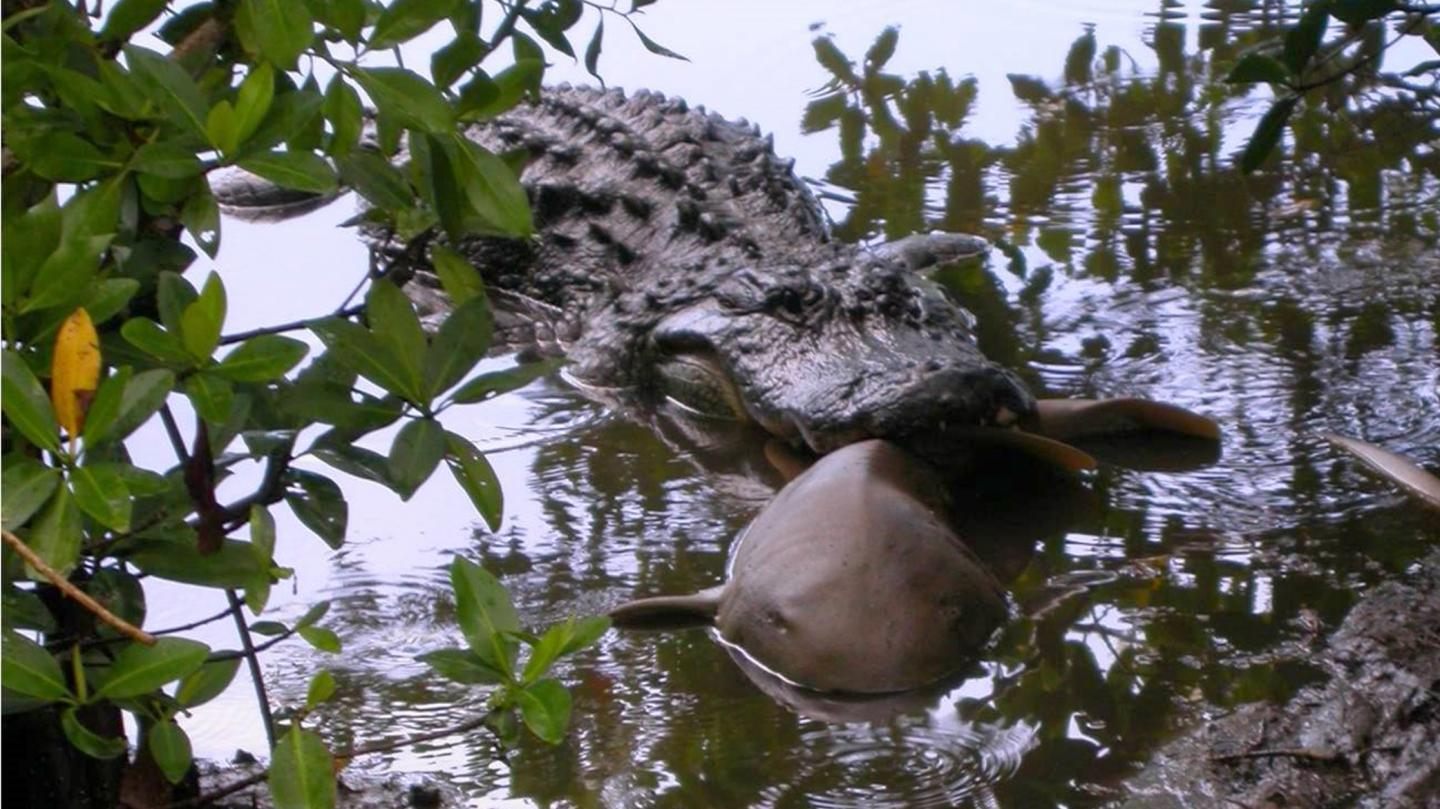We Now Have Evidence That Alligators Like Chomping on Sharks
Gators rarely pass up a snack.

Alligators can be tricky animals to study. If you want to know what they eat, for instance, you either have to catch them in action, open up a dead one, or pump their stomachs. A pair of intrepid biologists, looking at a variety of evidence and reports, have determined, surprisingly, that some alligators have expanded their menus to include sharks and rays.*
Alligators usually feed on crustaceans, such as crabs and shrimp, in addition to wading birds and fish. There are some stories of gators eating sea turtles and small sharks, but there hasn’t been a lot of hard evidence. Because alligators lack salt-secreting glands that would allow them to spend much time in salt water, they tend to stick to freshwater habitat, and that’s probably why biologists haven’t spent much time investigating interactions between alligators and sharks. But James Nifong, a biologist at Kansas State University, and Russell Lowers, a biologist at NASA’s Kennedy Space Center, argue that these interactions—a pleasant way to say gators eating sharks—probably happen more often than previously believed.
Their survey of gator-shark interactions* turned up evidence of meals that included a nurse shark, a lemon shark, a bullhead shark, and an Atlantic ray. The high acidity of alligator stomachs breaks down shark tissue in one to three days, which could be why there is little hard evidence of this part of the gator diet, beyond eyewitness reports.* GPS tracking units on alligators also show that coastal gators can hunt in saltier water. “When it rains really hard, they can actually sip fresh water off the surface of the salt water. That can prolong the time they can stay in a saltwater environment,” said Nifong in a statement. They may have these encounters further inland, too. Juvenile bull sharks live in Everglades estuaries where alligators also hang out. “While no evidence exists,” write Nifong and Lowers in their report, “given the overlap in habitats used, large American alligators foraging in these estuaries potentially consume immature bull sharks to some extent.”
* Correction: This article has been updated to state that the biologists came to their conclusion from reports of shark predation by alligators, and not by pumping alligator stomachs, as previously reported.






















Follow us on Twitter to get the latest on the world's hidden wonders.
Like us on Facebook to get the latest on the world's hidden wonders.
Follow us on Twitter Like us on Facebook